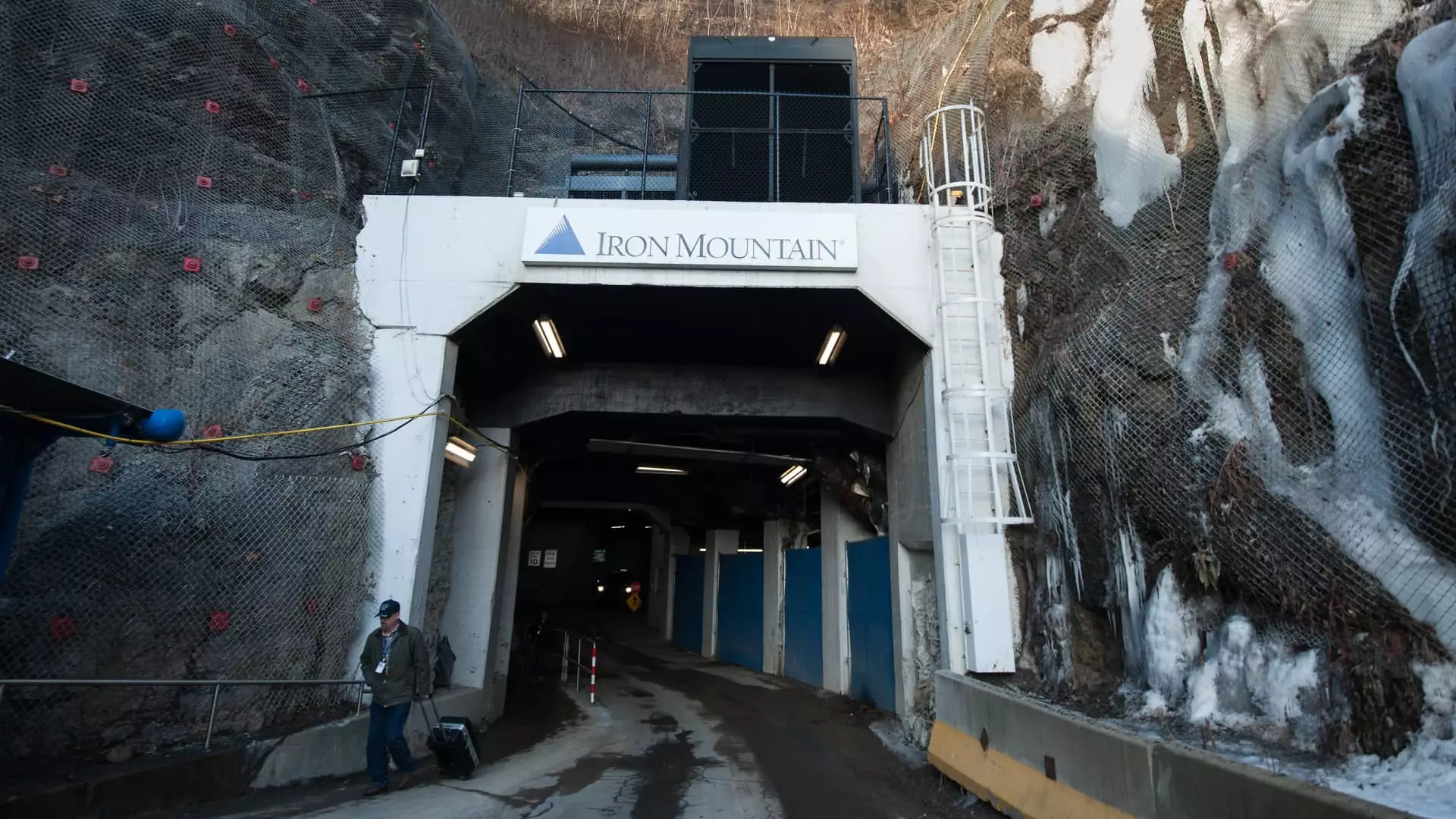In a striking display of intersecting worlds, Elon Musk, the controversial tech mogul, took a stand in the Oval Office alongside President Donald Trump, shedding light on what he described as glaring inefficiencies within the federal government’s bureaucracy. His comments revolved around the Department of Government Efficiency (DOGE), an initiative aiming to streamline governmental operations. While Musk’s critique aimed to spotlight inefficiencies, it inadvertently exposed broader questions about the relationship between private corporations and government contracting, especially concerning Iron Mountain, a company pivotal in document storage and management.
Musk’s vivid description of a limestone mine housing government retirement paperwork jarringly illustrated the archaic processes plaguing federal operations. By stating that the mine, operational since 1955, looked like “a time warp,” Musk underscored not only the outdated nature of paperwork storage but also the bottlenecks it creates in processing retirement applications for federal employees. His assertion that the mine’s elevator speed directly correlates to the pace of application processing is not just an amusing anecdote; it reflects a serious critique of systemic inefficiencies that have persisted over decades. Musk’s comments challenge both the practices of private contractors and the responsibilities of federal agencies to innovate and adapt.
Following Musk’s public critique, Iron Mountain’s CEO, Bill Meaney, reframed the narrative by articulating the company’s vision. Instead of shrinking in the face of scrutiny, Meaney projected optimism, indicating that the company’s digital transformation initiatives could thrive under the current government push for efficiency. He emphasized Iron Mountain’s expanding digital services within federal agencies, highlighting a revenue stream significantly larger than its government paperwork storage business. This pivot suggests that while Musk’s comments may have initially unsettled investors, they opened doors for Iron Mountain to align itself with state-of-the-art digital solutions—an avenue that may ultimately offer more stability than traditional storage practices.
Musk’s critical assessment seemed to cast a shadow over Iron Mountain’s stock performance, which saw declines shortly after his remarks. Investors, rattled by the possibility of losing contracts tied to outdated storage practices, reacted with concern. However, analysts, including those from Wells Fargo and Barclays, countered that such market responses were exaggerated. They highlighted Iron Mountain’s diversified revenue streams and argued that the company’s reliance on any single contract is minimal. These insights illustrate the sometimes erratic nature of stock markets responding to sensational public commentary, often detached from the underlying realities of a company’s operational robustness.
Musk’s commentary shines a light on a critical, yet often overlooked facet of government contracting—the interplay between innovation and inefficiency. His remarks raised eyebrows about how federal agencies engage with private companies and the potential need for stricter evaluations of such partnerships. In a climate where scrutiny over government spending is intensifying, the public and private sectors must collectively seek solutions that prioritize innovative approaches over outdated practices. If nothing else, Musk’s candid observations encourage an essential dialogue about the roles both sectors play in fostering a more efficient bureaucracy.
Ultimately, Musk’s candid criticism serves as a wake-up call for both government officials and private contractors. It emphasizes the urgent need for the federal government to reassess how it utilizes resources and engages with companies like Iron Mountain. Furthermore, it illustrates that while the past may haunt certain operational methodologies, the future should be directed toward embracing innovation and efficiency. As companies pivot to align with governmental efficiency initiatives, the symbiotic relationship between public mandate and corporate ambition could reshape not just the landscape of government contracting but also enhance overall public service delivery.
Elon Musk’s foray into the world of government efficiency, while controversial, may be the catalyst needed for meaningful reform. The implications of his critique extend far beyond just a single contractor; they raise critical questions about efficiency, accountability, and adaptability in an evolving bureaucracy. The stakes are high, and both the government and its partners must remain vigilant to harness change that not only cuts waste but also enhances service to the American populace.

